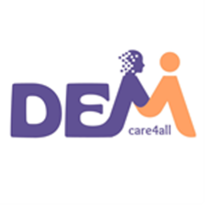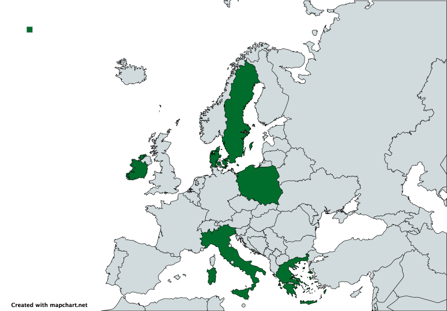Promoting intergenerational activities to support caregivers of people with dementia.

The vast majority of people with dementia are receiving care at home by family members. The disease does not only affect the patient but the whole family and their way of daily living. Explaining dementia to children and young people can also feel challenging for the adults and careers who support them.
DEMcare4all is a project which with its activities and results, aims to provide safe, effective, and comfortable care and to improve the lives of people with dementia, their family caregivers and family members.
The overall objective of our project is:
- to educate, inform and raise awareness about dementia among formal and family caregivers as well as people with dementia and those with early stages of dementia, aged 50+
- to educate and familiarize children and young people who live at the same house with people with dementia
- to support caregivers who are responsible for caring both demented people and children
- to create and promote learning opportunities among all citizens and generations
- to reduce the social stigma associated to dementia and improve the inclusion of the people suffering from this disease
The concrete results to be produced to achieve the abovementioned objectives are:
1) A Training Programme about dementia. It is addressed to formal and informal caregivers of people with dementia and as well as to people with dementia and those of early stages of dementia, aged 50+.
2) An educational programme about dementia targeting a) children/ young people aged 6-17, who live at the same house with grandparents or even parents suffering from dementia and b) formal and informal caregivers.
3) An intergenerational intervention in dementia, which includes a set of games and art activities, involving elderly people/people aged 50+, children/ young people aged 6-17, and their careers.
4) Awareness-raising, dissemination, and exploitation materials of the project, addressed to the above-mentioned target groups and also to other relevant stakeholders and the general audience.
The project is carried out in collaboration with partners from Sweden, Greece, Poland, Italy, Ireland and supported by the Erasmus+ program.
Erasmus+ Project number: 2022-1-SE01-KA220-ADU-000089173
The project period is 01/10/2022 till 31/08/2024 (24 months).
- Coordinator: Folkeuniversitetet Uppsala, Sweden
- Partner: ANC, Italy
- Partner: Frodizo, Greece
- Partner: EDRA, Greece
- Partner: Redial, Ireland
- Partner: Psifia, Italy
- Partner: WSBINOZ, Poland
- Partner: SOSU Østjylland, Denmark
You can read more about the project here: https://demcare4all.eu/

